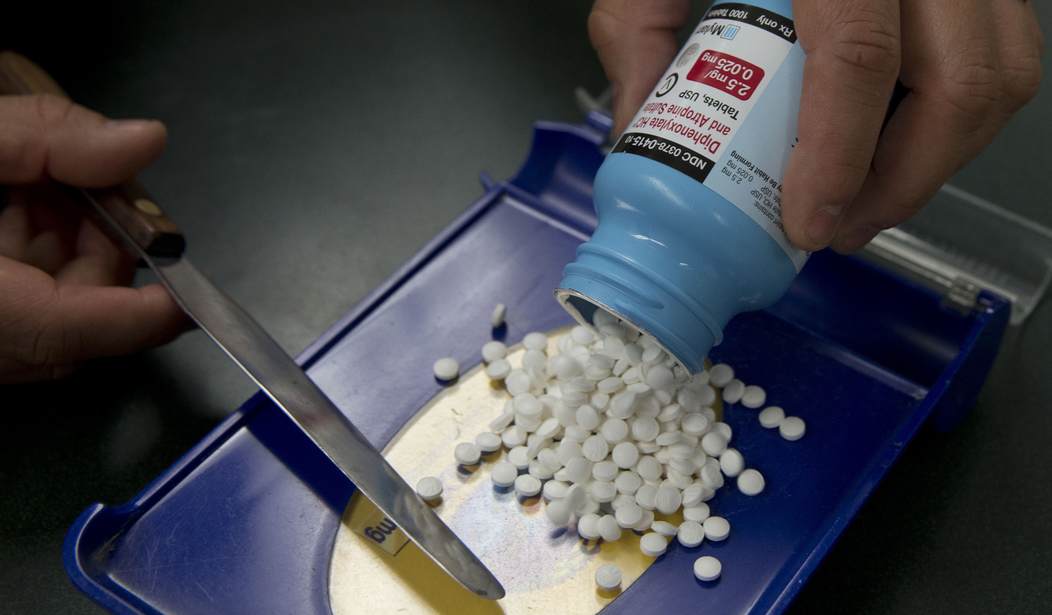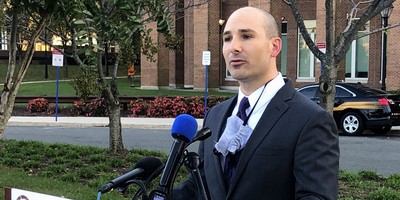Right before Thanksgiving Day, House Democrats passed Build Back Better, one of the most misguided and ill-timed bills in the history of congressional legislation.
At a time when an average of 1,300 Americans a day are dying from Covid-19 and tens of millions are battling chronic diseases from cancer to diabetes, the bill would discourage the development of lifesaving drugs. America's seniors will suffer the most as medicine cabinets soon turn distressingly bare.
Build Back Better would set drug reimbursements far below the market-based prices that Medicare, the nation's largest insurance program, currently pays. Cheaper drugs sound great, in theory. And who could possibly object to seniors paying less for their prescriptions?
Yet if only things were that simple. While the need for lower drug prices is urgent, those prices must be the result of market-based policies that don't disrupt research and development into new treatments.
Our lawmakers appear not to have thought through the inevitable consequences of their intended measures.
If the federal government intervenes in the market and prevents biotech companies from earning a fair return, then the investors backing those capital-intensive firms will steer their money elsewhere. As a result, promising treatments will wither on the vine, perhaps never even making it out of the lab due to a lack of funding.
An analogy might prove illustrative. Imagine if the government arbitrarily declared that restaurants can't charge more than $2 for cheeseburgers and 25 cents for fries. People might initially rejoice at the prospect of cheaper meals -- but pretty soon, they'd notice that restaurants had taken that option off the menu, or reduced the size of formerly half-pound burgers to tiny sliders. As for the fries …
Recommended
How many drugs would never reach patients as a result of legislation that does something pretty similar to a slew of medications?
Estimates vary. Economists at the University of Chicago who analyzed an earlier version of Democrats' bill projected it would "lead to a 29 to 60 percent reduction in R&D from 2021 to 2039 which translates into 167 to 342 fewer new drug approvals during that period."
Although the price controls in Build Back Better aren't quite as comprehensive as that eye-watering earlier version, they would eventually apply to 100 drugs, instead of up to 250.
But the impact would still be enormous. The Congressional Budget Office projects the price controls will save the government about $160 billion over a decade. That's $160 billion that biotech companies won't have available to spend on research.
Given that it takes about $3 billion, on average, to bring each new drug to market, it's clear that Democrats' bill would stifle the development of dozens of medicines. America's seniors would lose out on potential treatments, or even cures, for Alzheimer's, osteoporosis, various cancers, and other ailments.
Equally crucial to note is the potential impact these new curbs on research and development could have on our ability to react defensively when the next pandemic hits. The vaccines for Covid-19 may have appeared to hit the market -- and our bloodstreams -- in record time. The pandemic began in January 2020, and Americans were receiving their first jabs less than 12 months later. But let's not forget the clinical backstory for these vaccinations, and the years of costly research that were banked in order for our scientists to be ready to move when Covid crashed down on us.
If the drug-pricing provisions in Build Back Better had been in place a few years earlier, it is very unlikely that we would have been able to fight the coronavirus the way we can now.
And to add insult to injury, the savings from the price controls won't even benefit seniors. Democrats have already earmarked that money to help offset Build Back Better's bonanza of social-welfare spending. The money saved by raiding seniors' medicine cabinets will instead be spent on subsidizing electric vehicles and their charging stations, and on tax breaks to blue-state coastal millionaires.
Build Back Better is a disaster for seniors. It will impede scientists' ability to create lifesaving drugs. We can only hope the legislation fails in the Senate.
Saul Anuzis is President of 60 Plus, the American Association of Senior Citizens.

























Join the conversation as a VIP Member